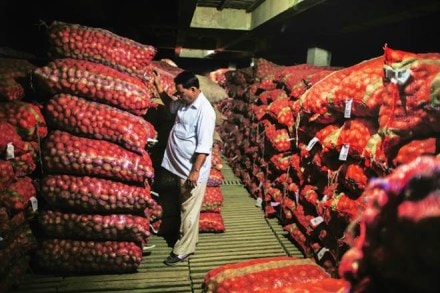The government will have to bring all stakeholders including the small ones having 1-2 warehouses in a mission mode project in next two years to achieve 100% geo tagging of agri-warehouses and cold storages, with estimated 162 million tonne capacity across the country.
Geotagging of warehouses is key to repealing the Essential Commodities Act, which is considered a major stumbling block in growth of the agriculture sector. “Most of the warehousing companies in the organised sector have already geo-tagged their entire operation managing through their own software. Through developing a proper technology, these companies can be integrated with the government-promoted software. But the real challenge will be to bring the small warehouses in the proposed plan,” said Sandeep Sabharwal, CEO of SLCM group which is managing 4,368 warehouses and 19 cold storages having a capacity of 14.4 million tonne.
NCML, StarAgri and LTC Commercial are some of the other companies in the private sector, which has about 35% share in the total warehousing space. The major players in warehousing sector are Food Corporation of India (FCI), Central Warehousing Corporation (CWC) and state-level warehousing corporations (SWCs). The FCI controls about 76 million tonne capacity — both its own and hired from CWC, SWCs and private sector — which is nearly half of the total capacity of the country.
According to the Economic Survey 2019-20, “the Essential Commodities Act, while penalising speculative hoarding, also ends up penalising the much desirable consumption-smoothing that storage provides. With the agricultural markets in India increasingly becoming more integrated and competitive, the utility of the Act is dubious and is incompatible with development of an integrated competitive national market for food.”
Asked about whether private companies will join the initiative, Sabharwal said: “Unless we know the objective of the initiative, it is difficult to make an assessment. After geotagging, the government will be able to know the real-time commodities movement in the country as all warehouses will have to be linked to a central database.”
Traders said it could be utilised to make a surveillance on commodities trade as the government had always blamed them for any price rise, putting stock limits and applying the EC Act for raids and inspection. Citing the recent price spiral in onion, they said despite all coercive steps the government could not bring down the rates, which was due to a demand-supply issue.
“If technology can be used in a positive way, traders can expect no more raids in future as the government will have all the data on storage,” said Pawan Gupta, a wheat trader in western Uttar Pradesh.
The government needs to fix a time frame to implement this plan, Gupta said, adding an authority by the Central government should be constituted to oversee this geotagging to stop interference from state officials at local levels.
NABARD will undertake an exercise to map and geotag all agri-warehouses, cold storage and refrigerated vans, finance minister Nirmala Sitharaman had said in her Budget speech last week.
